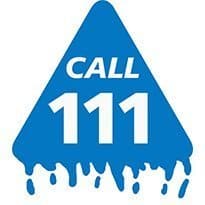NHS Direct withdraws from 111
- 29 July 2013

NHS Direct is withdrawing from all of its NHS 111 contracts saying they are “financially unsustainable”.
NHS Direct holds nine contracts to provide the new non-urgent health line to around one third of the country. Commissioners in these areas will now have to find other providers for the troubled service.
EHI reported late last month that the organisation was cancelling contracts in North Essex and Cornwall, acknowledging that all of its contracts were “financially unsustainable”.
NHS Direct’s Annual Report and Accounts for 2012/13 says it is now seeking to agree a managed transfer of all its 111 services, including the frontline and other staff who currently provide them, to alternative providers.
“NHS Direct is seeking to withdraw from the NHS 111 contracts it entered into as these have proved to be financially unsustainable,” a statement issued this morning says.
“The trust will continue to provide a range of web, mobile and telephone services for patients which complement NHS 111 and support the NHS."
NHS Direct chief executive Nick Chapman said the organisation will continue to provide a safe and reliable 111 service to patients until alternative arrangements can be made by commissioners.
“Whatever the outcome of the discussions on the future, patients will remain the central focus of our efforts, together with protecting our staff who work on NHS 111 to ensure that the service will continue to benefit from their skills and experience,” he added.
NHS England says it will support commissioners to find alternative providers.
Deputy chief executive Dame Barbara Hakin explained that the commissioning board has been in discussions with NHS Direct for some time over this issue.
“We are also having constructive discussions with a number of potential new providers who could take on these contracts, specifically with the local ambulance trusts who have experience and a strong track record in provision of similar services.”
Dame Barbara said NHS Direct’s contracts will come to an end in a managed way throughout 2013-2014.
A review by Deloitte published last month said commissioners across the country had little confidence in NHS Direct’s ability to recover its provision of NHS 111 after it went live with the service with fewer staff than needed to handle calls to its contact centres.
It described NHS Direct’s forecasting of the required resources to meet anticipated call volumes as, “significantly adrift from the actual requirement experienced”.
The original bids included average handling times of 310 seconds for call handlers and 420 seconds for clinical advisors. Actual figures to date have been 690 seconds for call handlers and 830 seconds for clinical advisers.
Chair of the BMA’s GP committee Dr Chaand Nagpaul described the implementation and planning of NHS 111 as an “abject failure”.
“The decision by NHS Direct to seek a withdrawal from its contracts to provide NHS 111 reveals worrying flaws, not just with the tendering process for NHS 111 contracts, but for how contracts are awarded and monitored throughout the NHS,” he said.
“The government should expand its review into NHS 111 to include an examination of what went wrong with the tendering process, particularly whether providers were given an advantage if they put in the lowest bid,” Dr Nagpaul added.
“If NHS 111 is to recover it must receive proper funding and be closely integrated with local NHS services.”
A spokesperson for Unison said the government failed to listen to warnings about NHS 111, which has been plagued with problems since its inception.
“NHS Direct – a trusted provider – is saying it cannot safely provide the service for the money available. This is a clear sign that the 111 model is wrong,” a Unison statement says.
“These contracts should not simply be re-issued. It is clear that we need a more integrated approach to out of hours emergency care including 111, GP services, ambulance and A&E services.”
Areas affected by NHS Direct’s decision are; North Essex and Cornwall and the Isles of Scilly; Buckinghamshire, East London and the City; South East London; Sutton and Merton; West Midlands; Lancashire and Cumbria; Greater Manchester; Merseyside and Cheshire and Somerset.




